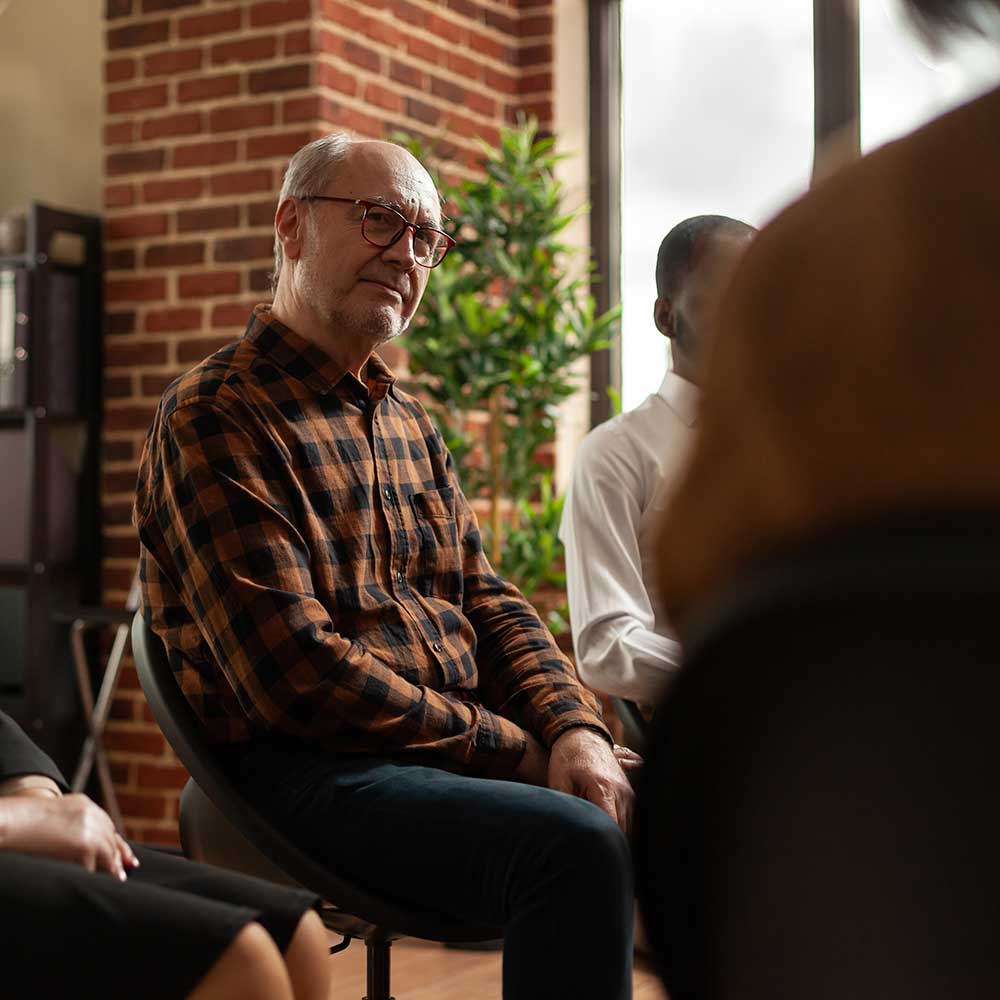 Group therapy is a powerful way to help people recover from addiction. It gives individuals a chance to connect and heal together in a supportive group setting. Unlike individual therapy, group therapy brings people together to share experiences, learn from each other, and grow as a team. With the help of trained professionals, participants work on overcoming challenges, building coping skills, and creating healthier habits.
Group therapy is a powerful way to help people recover from addiction. It gives individuals a chance to connect and heal together in a supportive group setting. Unlike individual therapy, group therapy brings people together to share experiences, learn from each other, and grow as a team. With the help of trained professionals, participants work on overcoming challenges, building coping skills, and creating healthier habits.
Group therapy is a big part of many addiction treatment programs. It can take place in different settings, like residential treatment, outpatient programs, or aftercare. Sessions usually last one to two hours and might happen once a week or more, depending on the plan. The support and learning that happen in these groups make them a key part of addiction recovery.
Contact Santé Center for Healing today to begin your journey towards healing and recovery.

The 3 stages of group therapy
Throughout your addiction treatment, you’ll progress through three stages of group therapy.
Beginning Phase
When you first join, you’ll get used to how group therapy works. You’ll learn the rules, like keeping things confidential, and understand the group’s goals.
Middle Phase
This is where the biggest changes happen. You’ll start noticing improvements in thinking, acting, and working toward your goals. You’ll also build strong and meaningful connections with others in the group.
End Phase
In the final phase, you’ll see how much you’ve grown. You’ll also talk about any worries you have about finishing the group or the program.
The benefits of group therapy

Group therapy can be a great help for people recovering from addiction, especially when used with other treatments. In group sessions, you can find support, learn helpful tools, and get advice that can make your recovery journey easier. Here’s why group therapy works so well:
- Learning and support: Hearing others share their stories helps you feel less alone and gives you new ideas about recovery.
- Staying accountable: Going to regular sessions helps you stay focused on your recovery goals and keep up healthy habits.
- Coping skills: Groups teach you how to handle stress, triggers, and emotions in a healthy way.
- Encouragement: Watching others make progress can inspire you to keep going in your own recovery.
- Better communication: Talking in a group helps you share your thoughts and feelings more clearly and set healthy boundaries.
- Confidence boost: Joining discussions and getting feedback can help you feel more confident and proud of your progress.
- Building relationships: Working with others in a positive way prepares you for healthy social connections outside of therapy.
When combined with individual therapy, group therapy gives you both personal support and a sense of community, helping you handle your challenges while feeling like you belong.
Will group therapy work for you?
Engaging in group therapy can feel intimidating at first, but the benefits far outweigh any initial discomfort. By joining a group tailored to your treatment needs, you’ll discover a space where shared experiences and professional guidance support growth and healing. Group sessions give you the practical skills to face life’s challenges and empower you to build meaningful connections that can last beyond treatment.
In many cases, Santé Center for Healing may offer groups organized around a particular addiction, gender, or skill set, or tailored in other ways—whatever works best for your individual treatment needs.
Group sessions usually focus on building coping skills that will help you avoid relapse and live a better, more fulfilling life in recovery. Common topics include:
- Type of addiction
- Handling triggers and temptations
- Shame resiliency
- Grief and loss
- Trauma resolution
- Building positive relationships
- Communicating better
- Anger management
Find the right program for your recovery at Santé Center for Healing
At Santé Center for Healing in Argyle, Texas, just north of Dallas/Fort Worth, we use both group therapy and individual therapy to help people recover. Our program combines these therapies to create a plan that fits each person’s needs. When thinking about group therapy vs individual therapy, it’s important to know that group therapy lets you share experiences and learn from others. In contrast, individual therapy gives you one-on-one time with a counselor. However, one of the disadvantages of individual therapy is that it doesn’t offer the same sense of community that group therapy provides.
If you’re ready to take the first step toward a healthier, brighter future, contact us online or call us at 866.238.3154.

